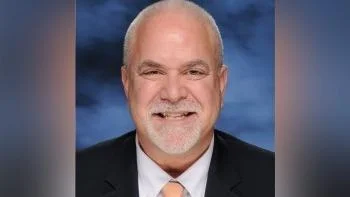The Illinois pension crisis continues with little assurance that a quick-fix will solve the state’s mounting financial disaster.
Last month, many Illinois citizens were encouraged when Republican Gov. Bruce Rauner announced an unprecedented agreement he had reached with Senate President John Cullerton (D-6th District) in an effort to solve what some have referred to as the worst pension crisis in the nation. Cullerton’s plan gives workers a choice in retirement benefits in an effort to shrink Illinois’ $111 billion unfunded pension liability.
Senate District 26 candidate Dan McConchie told the Lake County Gazette that he thinks the pension reform is a step in the right direction, but he believes long-term reform is needed to fully address the pension crisis.
“We’re going to have to have fundamental reform long term in our state,” McConchie told the Lake County Gazette. “The governor has indicated a willingness to sit down and work off of that template. If they’re able to come up with something that’s going to be upheld by the courts and really does begin to address the unfunded pension liability that we have, I think that’s great. I don’t think that it’ll be enough, though.”
Rod Drobinski, candidate for the District 62 seat in the Illinois House of Representatives, said he would have to take an in-depth look at Cullerton’s plan before he could support the plan.
“I think we need to re-evaluate the pension scheme to make it more of a contribution rather than a benefit scheme,” Drobinski told the Lake County Gazette. “So I have to look at Senate President Cullerton’s plan further. Just because Gov. Rauner supports something doesn’t mean I am going to support it, but overall I think Rauner is on the right track.”
Democrats have said they may not address the pension legislation until the state has a budget, and they continue to haggle with Rauner on how to close the approximately $5 billion budget deficit.
With no solution in sight to the pension debacle, many Illinois taxpayers’ are wondering whether a tax hike is eminent and how Illinois will be able to compete with other states.
“The No. 1 thing we can do is create greater stability in our state,” McConchie said. “There is so much uncertainty over what our future tax rate is going to be, are we going to meet the obligation that we currently have -- pension obligations, and so forth -- and how much higher are taxes going to go?”
McConchie said the state’s financial problems are leading many people and businesses to considering moving out of Illinois to neighboring states such as Wisconsin and Indiana, which have much more stable environments.
“That’s what the governor is trying to do, because simply raising taxes isn’t sufficient in order to create the kind of stability that’s necessary to really grow our economic structure,” McConchie said. “In order to do that, we need to have fundamental reform.”
Rauner’s address laid out multiple areas in which he was working to create reform, but the governor failed to provide specific detail on how his proposal would save taxpayers money and provide structural stability, McConchie said.






 Alerts Sign-up
Alerts Sign-up